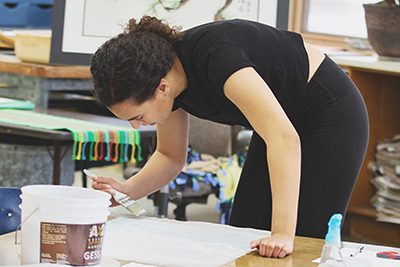March 7, 2019
 by Mark Segal, Upper School Director
by Mark Segal, Upper School Director
Editor’s Note: On the first Thursday of each month, you will find a guest blog post here from one of MPA’s division directors. We hope you will enjoy reading their thoughts and reflections about life at MPA.
I recently celebrated a milestone birthday. It was one of those birthdays where AARP sends you both a birthday card and a membership card in the same envelope. It’s not hard to believe that I have now entered my sixth decade, but rather that I have been an educator for as long as I was a traditional student. Regardless, my experiences as a student are the ones that I often find myself replaying in my mind and on which I rely as I work with MPA students and my own fifth-grade son. The reality is that it is not my successes that draw me back to my childhood, but the challenges that I experienced. The times I did not meet the expectations that I set for myself or were given to me by others.
Fast forward to today, there is no question that we, as parents and educators, want to do all that we can to help our children succeed at school and in life. We “keep an eye on them” by subscribing to different platforms, monitor and try to correct their unproductive habits, keep them from being perfectionists, and strive to provide them with the strongest foundation possible. Yet, we continue to search for the best ways to help our children help themselves; especially in school.
Many would conclude that having a strong self-esteem is vital to increasing one’s academic excellence. A recent article in the International Journal of Health Sciences and Pharmacy says that, “children with high self-esteem, usually feel good about themselves and find greater success within an academic setting.” The challenge, however, is that one’s self-esteem is a judgement about how valuable they perceive themselves to be. Do they see themselves as very valuable, reasonably valuable, or not valuable at all? This judgement is only heightened in school settings by the extrinsic motivation of academic grades. Students develop and maintain their self-esteem through the process of taking assessments, collaborating on projects, and completing daily assignments and then reflecting on how they have done and what others tell them about how they have done. As one might imagine, this has the possibility of being a dangerous cycle if parental, teacher, or self-expectations are not met.
University of Texas psychology professor Kristen Neff, Ph.D., in her book “Self Compassion: The Proven Power of Being Kind to Yourself” shares that in contrast to looking at our successes through the lens of self-esteem, we should look at them through the lens of self-compassion as our successes should not be, in any way, about evaluation. Neff explains that, “self-compassion is a healthy source of self-worth because it is not contingent and it is unconditional.” Over time, self-compassion is more stable because it is intrinsically driven and not dependent on external items; like grades.
Neff also shares that “most of us motivate ourselves through self-criticism.” The end goal, however, should really be the journey rather than only the outcome. Taking this approach will allow students (and adults) to focus on more than just the result and will encourage us to try doing something differently, taking developmentally appropriate risks, and to try again if the outcome is not what was expected by self or others. These are actions that we here at MPA value tremendously and encourage daily. We strive to inspire students to be freethinkers, risk takers, dreamers, and doers who have grit, tenacity, and resilience.
So, what do we do as parents and teachers within an ultracompetitive U.S. culture that constantly tells us we need to be almost perfect to feel good about ourselves and our achievements? Please find below some of Neff’s suggestions:
- Encourage your child to support themselves as they would a friend. We frequently support friends and peers with positive words and thoughts when they are down or going through tough times. We should use the same approach with ourselves when things are not going as we had planned.
- Watch your language. It is instinctive to get angry and frustrated at our children when they earn a low grade. This reaction is often seen as a judgement against their intellect. The compassionate approach is to help your child see this as a learning experience and identify what will assist them in doing better next time.
- When you mess up, fess up. Inevitably we are all going to make mistakes. The important lesson is to own these mistakes, move ahead, and strive to not have the same mistake happen again.
- Practice mindfulness techniques. After experiencing a setback, children and adults often get down on themselves and feel a sense of hopelessness. By taking deep breaths and placing your hand on your heart, the human hormone oxytocin is released and this makes us feel connected and safe.
It is true that our students experience a considerable amount of pressure. Some of it is brought on by themselves and some is due to external expectations. By becoming more self-compassionate they will be able to heal their destructive emotional patterns so that they can be more productive, healthier, and happier.
Mounds Park Academy, a PreK-12 private school in Saint Paul, is currently accepting applications for the 2019-20 school year. For more information about admission and to schedule your tour, visit moundsparkacademy.org/admission. We look forward to getting to know your family!